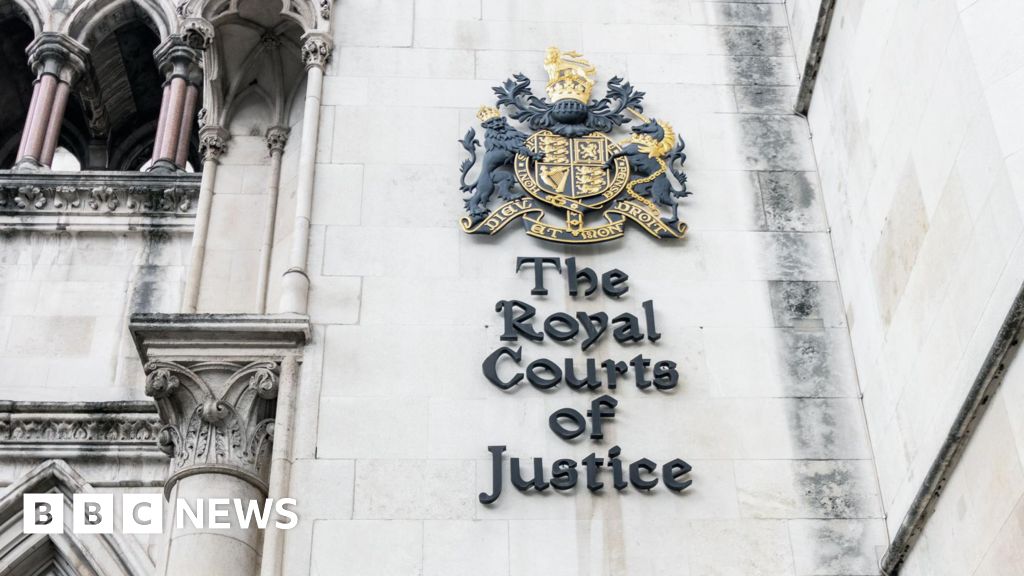Health correspondent
A former nurse has lost her High Court challenge against the registration of England’s first private gender clinic for teenagers.
Susan Evans, and a mother who asked not to be named, had argued that the health regulator, the Care Quality Commission (CQC) had “acted irrationally” in registering the Gender Plus Hormone Clinic.
On Thursday, Mrs Justice Eady said she was satisfied the steps taken by the CQC were “rationally focused” and it had “patient safety foremost in mind” when it assessed the clinic.
The clinic, which is rated “outstanding”, said the ruling “demonstrates the diligence and integrity” of its work.
Ms Evans said she was “extremely disappointed”.
The Gender Plus Hormone Clinic is believed to be the only private organisation in England which is registered to treat 16- and 17-year-olds with hormones for gender incongruence, defined as a mismatch between their biological sex and their gender identity.
Cross-sex hormones, such as oestrogen or testosterone, are given to people who identify as a different gender to their biological sex. The medication helps someone who is transitioning to develop characteristics associated with their preferred gender.
For instance, it would help a trans man, a biological female who identifies as a man, develop a deeper voice and facial hair.
NHS guidance on the prescription of the hormones to young people was updated following the publication of the Cass Review last year.
The review stressed the need for “extreme caution” when using hormones in the treatment of 16- to 17-year-olds.
The two women alleged that when the CQC inspected and registered the Gender Plus clinic it did not take this into account
NHS guidance says all young people, who are recommended for hormone interventions, must have the decision reviewed and endorsed by a national multi-disciplinary team that can consider all aspects of their care.
Gender Plus Hormone Clinic, which was set up by Dr Aidan Kelly and is led by nurse consultant Paul Carruthers, had told the court it follows the NHS guidance and had set up its own multi-disciplinary team. Its procedures were reviewed by the CQC inspectors.
In the ruling, Mrs Justice Eady said: “I am satisfied the steps taken by the CQC were rationally focused on scrutinising the actual process by which the clinic provided the service in issue. I duly reject this objection.
“What is, moreover, clearly apparent from the CQC’s evidence is the detailed scrutiny that was undertaken in order to be able to assess clinic’s compliance with the regulatory requirements.
“It is apparent that this was an assessment that drilled down to the detail of the service provided… with patient safety foremost in mind.”
She said the question whether the CQC had adequately considered “the particular, and changing, approach adopted by the NHS”, was important.
But she concluded the criticisms of the clinic were about the internal structure of the organisation and “focused on issues of form rather than substance”.
Speaking after the judgment, Ms Evans said: “I am extremely disappointed at the outcome of this judicial review.”
The unnamed mother added: “To say I am disappointed is an understatement.”
The NHS has opened three specialist children’s gender clinics and has plans for a further five, covering the seven NHS regions in England, by the end of 2026.
It is understood the NHS multi-disciplinary team has not yet received any recommendations for hormone treatment for 16- and 17-year-olds since the Cass Review.
The ruling means Gender Plus can continue to deliver services from its clinics in London, Birmingham and Leeds.
Responding to the court ruling, Gender Plus Hormone Clinic said: “This Judicial Review further demonstrates the diligence and integrity of our work.
“We operate according to the highest standards, always putting patient safety and wellbeing at the heart of every decision. We couldn’t have hoped for a better outcome.”
A Care Quality Commission spokesperson said: “We are pleased that today’s ruling recognises CQC’s regulatory expertise.
“It also supports the systems and processes at CQC that put the needs of people using services at their heart and help to ensure that people receive care and treatment in a safe way.”
Source link : https://www.bbc.com/news/articles/cpdjnz6ngd9o?at_medium=RSS&at_campaign=rss
Author :
Publish date : 2025-07-31 17:07:00
Copyright for syndicated content belongs to the linked Source.
